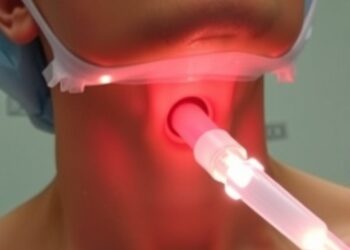Lisbon, Portugal – 11 May 2024: Heart failure patients who are vaccinated against COVID-19 have an 82% greater likelihood of living longer than those who are not vaccinated, according to research presented today at Heart Failure 2024, a scientific congress of the European Society of Cardiology (ESC).1 Heart Failure is a life-threatening syndrome affecting more than 64 million people worldwide.2
Lisbon, Portugal – 11 May 2024: Heart failure patients who are vaccinated against COVID-19 have an 82% greater likelihood of living longer than those who are not vaccinated, according to research presented today at Heart Failure 2024, a scientific congress of the European Society of Cardiology (ESC).1 Heart Failure is a life-threatening syndrome affecting more than 64 million people worldwide.2
“Patients with heart failure should be vaccinated against COVID-19 to protect their health,” said study author Dr. Kyeong-Hyeon Chun of the National Health Insurance Service Ilsan Hospital, Goyang, Republic of Korea. “In this large study of patients with heart failure, COVID-19 vaccination was associated with a lower likelihood of contracting the infection, being admitted to hospital because of heart failure, or dying from any cause during a six-month period compared with remaining unvaccinated.”
Previous studies have shown the safety of COVID-19 vaccination in patients with cardiovascular diseases including heart failure,3-5 and that COVID-19 outcomes are worse in patients with heart failure compared to those without heart failure.6 However, there has been little research on how vaccines work specifically in patients with heart failure. This nationwide, retrospective study examined the prognosis of heart failure patients according to COVID-19 vaccination status.
This study used the Korean National Health Insurance Service database, which covers nearly all residents of the Republic of Korea, to obtain information on vaccinations and clinical outcomes. Participants who received two or more doses of COVID-19 vaccine were defined as “vaccinated”, and those who were not vaccinated or had received just one dose were defined as “unvaccinated”.
The study included 651,127 patients aged 18 years or older with heart failure. The average age was 69.5 years and 50% were women. Of the total study population, 538,434 (83%) were defined as vaccinated and 112,693 (17%) as unvaccinated. To control for factors that could influence the relationship between vaccination status and outcomes, the researchers performed 1:1 matching of vaccinated and unvaccinated patients according to age, sex, other health conditions (e.g. high blood pressure, diabetes, high cholesterol, etc.), income, and region of residence. This resulted in 73,559 vaccinated patients and 73,559 unvaccinated patients for the comparative analyses.
The median follow-up was six months. Vaccination was associated with an 82% lower risk of all-cause mortality,7 47% lower risk of hospitalisation for heart failure,8 and 13% reduced risk of COVID-19 infection9 compared with no vaccination. Regarding cardiovascular complications, vaccination was associated with significantly lower risks of stroke, heart attack, myocarditis/pericarditis, and venous thromboembolism compared to no vaccination.
Dr. Chun said: “This was the first analysis of COVID-19 vaccine effectiveness in a large population of heart failure patients, and the first to show a clear benefit from vaccination. The study provides strong evidence to support vaccination in patients with heart failure. However, this evidence may not be applicable to all patients with heart failure, and the risks of vaccination should be considered in patients with unstable conditions.”
Authors: ESC Press Office
Tel: +33 (0)489 872 075
Email: press@escardio.org
Follow us on Twitter @ESCardioNews
Notes to editor
Funding: This study was funded by the National Health Insurance Service Ilsan Hospital, Goyang, Republic of Korea.
Disclosures: None.
References and notes
1The abstract ‘Association between vaccination against COVID-19 and clinical outcomes in patients with heart failure: using the Korean National Health Insurance Service database’ will be presented during the session ‘Chronic heart failure – epidemiology, prognosis, outcome 1’ which takes place on 11 May 2024 at 09:00 WEST at Moderated ePosters 3.
2Savarese G, Becher PM, Lund LH, et al. Global burden of heart failure: a comprehensive and updated review of epidemiology. Cardiovasc Res. 2023;118(17):3272-3287.
3Voysey M, Clemens SAC, Madhi SA, et al. Safety and efficacy of the ChAdOx1 nCoV-19 vaccine (AZD1222) against SARS-CoV-2: an interim analysis of four randomised controlled trials in Brazil, South Africa, and the UK. Lancet. 2021;397:99–111.
4Polack FP, Thomas SJ, Kitchin N, et al. Safety and efficacy of the BNT162b2 mRNA Covid-19 vaccine. N Engl J Med. 2020;383:2603–2615.
5Baden LR, El Sahly HM, Essink B, et al. Efficacy and safety of the mRNA-1273 SARS-CoV-2 vaccine. N Engl J Med. 2021;384:403–416.
6Rey JR, Caro-Codón J, Rosillo SO, et al. Heart failure in COVID-19 patients: prevalence, incidence and prognostic implications. Eur J Heart Fail. 2020;22:2205–2215.
7All-cause mortality: hazard ratio (HR) 0.18, 95% confidence interval (CI) 0.17-0.18, p<0.0001.
8Hospitalisation for heart failure: HR 0.53, 95% CI 0.52-0.55, p<0.0001.
9COVID-19 infection: HR 0.87, 95% CI 0.69-0.98, p=0.028.
About Heart Failure 2024 & World Congress on Acute Heart Failure
Heart Failure is the annual congress of the Heart Failure Association (HFA) of the European Society of Cardiology (ESC). #HeartFailure2024
About the Heart Failure Association
The Heart Failure Association (HFA) is a branch of the European Society of Cardiology (ESC). Its aim is to improve quality of life and longevity, through better prevention, diagnosis and treatment of heart failure, including the establishment of networks for its management, education and research.
About the European Society of Cardiology
The European Society of Cardiology brings together health care professionals from more than 150 countries, working to advance cardiovascular medicine and help people lead longer, healthier lives.
Information for journalists about registration for Heart Failure 2024
Heart Failure 2024 takes place 11 to 14 May at the Lisbon Congress Centre, Portugal and online. Explore the scientific programme.
- Free registration applies to accredited press.
- Credentials: A valid press card or appropriate letter of assignment with proof of three recent published articles. Read the ESC media and embargo policy.
- The ESC Press Office will verify the documents and confirm by email that your press accreditation is valid.
- The ESC Press Office decision is final regarding all press registration requests.




